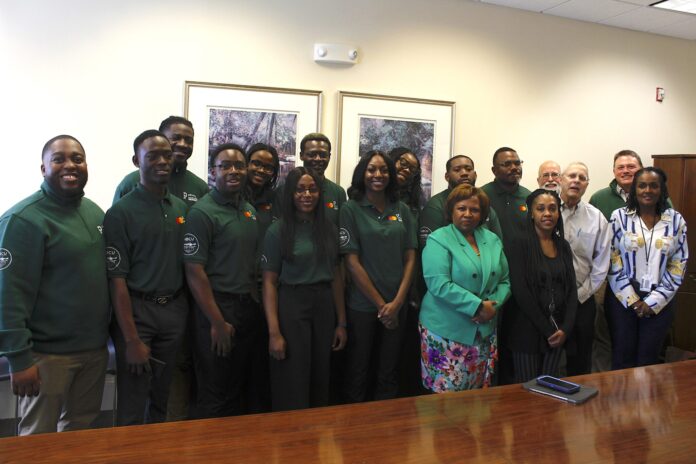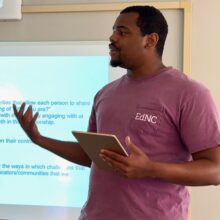Pathway Community Foundation (PCF) is gearing up to host their annual HBCU Smart Cities Pitch Competition. Over the past several months, students from historically black colleges and universities (HBCUs) across multiple states have teamed up to create change in three North Carolina cities.
Continue reading to learn how these scholars are collaborating and leveraging technology to develop innovative solutions for real world challenges.
Venturing beyond the classroom
Ayinde Simon, PCF’s co-founder and director of partnerships, emphasized their effort to nurture efficacy among students. He identified experimental education as one of the cornerstones of their program.
“How do you take what you’re experiencing in the classroom, in textbooks, and put that in a real world situation?” he asks.
As part of PCF’s flagship program, HBCU Smart Cities Challenge, students form teams from across campuses, bringing together their experiences and ideas to address areas of growth presented by partner cities.
“I think having someone, a group of students, who are more involved in that day-to-day of upcoming technology, it’s beneficial for the city and it’s beneficial for the community they’re trying to reach.”
— Shereka Floyd, city of Winston-Salem’s home program manager
This year, PCF launched their third cohort, consisting of 25 students from 12 different HBCUs, including North Carolina’s own Fayetteville State University, Johnson C. Smith University, and Winston-Salem State University (WSSU).
The students are organized into six teams and assigned to one of the following three cities: Charlotte, Rocky Mount, and Winston-Salem. Students participate in community engagement and conduct site visits at their assigned city to get an in-person look at the circumstances for which they are tasked with developing solutions.
“We must listen to our young people. It’s the world that they’re going to be living in 20-30 years from now. So why not bring them in and respect their opinions?”
— Council Member Annette Scippio, City of Winston-Salem, East Ward
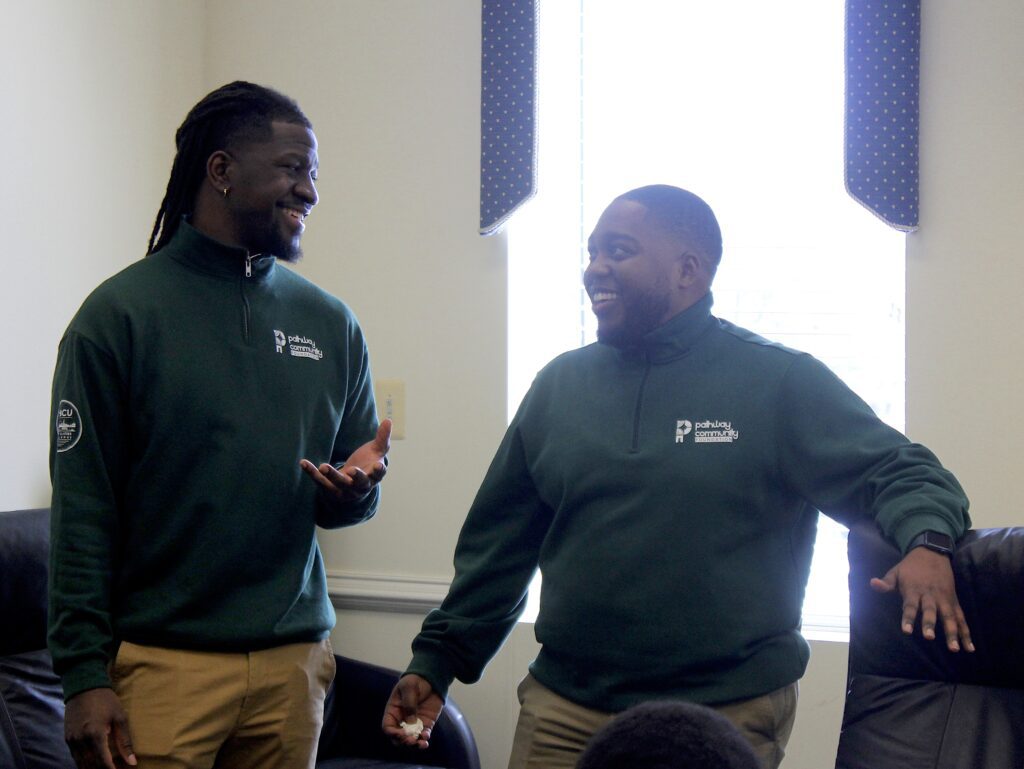
A closer look in the community
In March, EdNC traveled with the Winston-Salem teams on their community exploration as eight students convened with city representatives around two topics: fire safety and homelessness.
One team met with Winston-Salem’s Fire Department (WSFD) and focused on the integration of data from the city’s planning department into a dashboard that is accessible to the fire department. According to David Emery, WSFD’s assistant accreditation manager, the visit allowed students to see “real world limitations of data sets,” such as privacy concerns or software integration.
Clavine Ntimeh is a senior business marketing major at WSSU. Leading up to the site visit, Ntimeh shared that she has benefited greatly from learning about tools like Figma and geographical mapping software as her team prepared their mock-ups to present to the fire department. After gaining a clearer understanding of Emery’s day-to-day responsibilities, Ntimeh stated that her team was able to get feedback on how their tool can be used to the advantage of the firefighter team.
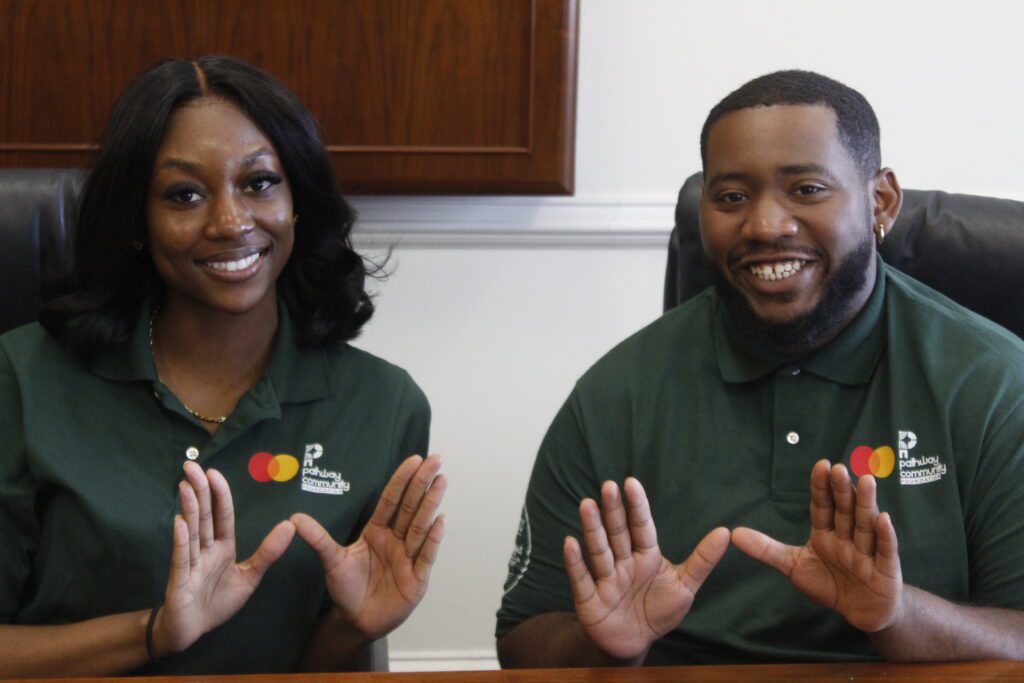
When it came to addressing homelessness in the city, Winston-Salem’s neighborhood services director Shantell McClam said she was unsure how students may use technology to address what she considers to be such a “human issue.”
McClam’s passion in this area derives from being a Winston-Salem native.
“I was born and raised here, and I knew where we were and where we are today, and I want to see us get back some semblance of where we were before,” she stated.
While students came in with a technical and analytical view of the task at hand, Shereka Floyd, Winston-Salem’s home program manager, stated that the goal of the community exploration was to show students the other side – “the human side of it.” Also a Winston-Salem native, Floyd is committed to finding and solving problems in her community, “a place that I genuinely love,” she said.
The students traveled with McClam, Floyd, and other city representatives to witness encampments throughout various parts of the city. According to Floyd, it was important to provide students an actual view of individuals that they come in contact with while sharing strategies that they have used in the past, all in an effort to support students with having a “human approach” to working with people.
Benedicta Nzekwe is a freshman at Philander Smith University. When reflecting on her experience following the encampments, she described it as an “enlightening journey.”
Nzekwe said that she transitioned from thinking of homelessness conceptually to being able to understand exactly where people are staying, how people move, and the numerous reasons that contribute to homelessness.
A key takeaway for Nonso Duaka, a junior at Grambling State University, was that “homelessness has a lot of nuances involved with it.” On the visit, he had the opportunity to see the environments where people are situated and learned how people from all walks of life may be impacted by homelessness.
“One major thing that I wholeheartedly want to achieve as we go forward is to actually see our project come to life and see it actually being implemented by Winston-Salem to be used to enhance or improve the situation of homelessness in this particular city,” Duaka said.
About the upcoming competition
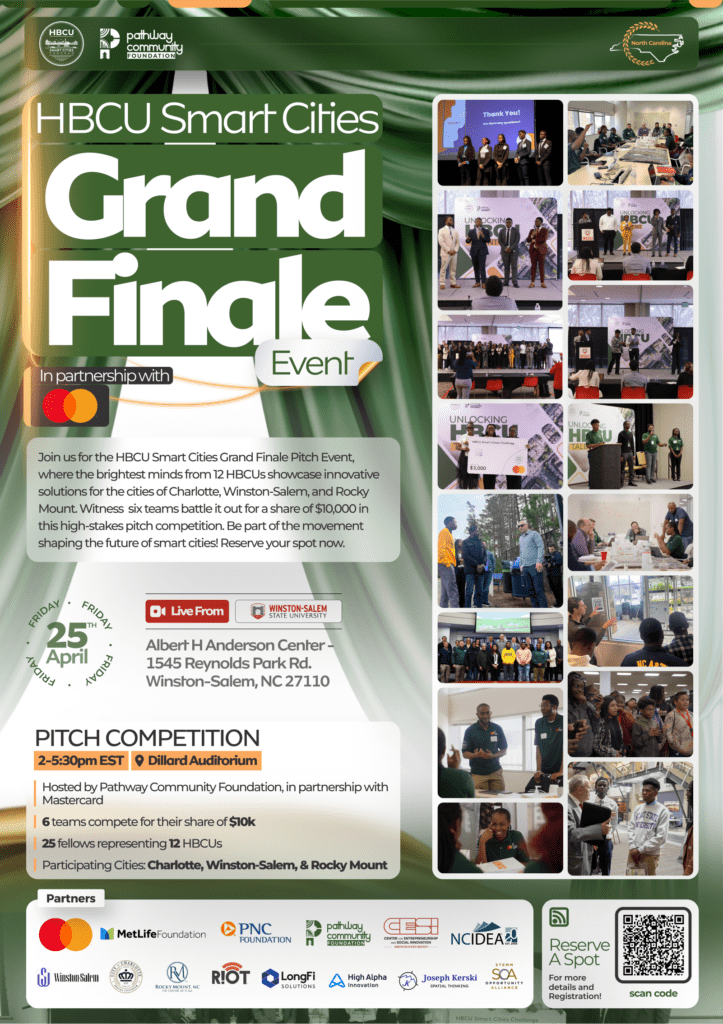
Following their community engagement, the fellows now have additional context and data to use to make revisions to their projects ahead of their final presentation.
On April 25, PCF will host their 2025 N.C. HBCU Smart Cities Pitch Competition in partnership with Mastercard. Held at the Albert H. Anderson Jr. Conference Center in Winston-Salem, the grand finale will consist of all six teams pitching their respective projects for a chance to win a share of $10,000 in cash prizes.
Click here for more information and to register.


